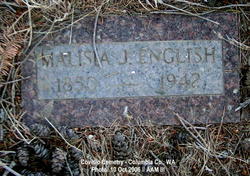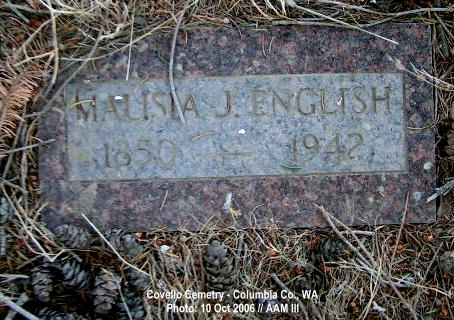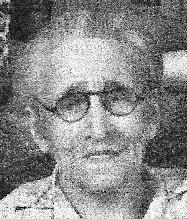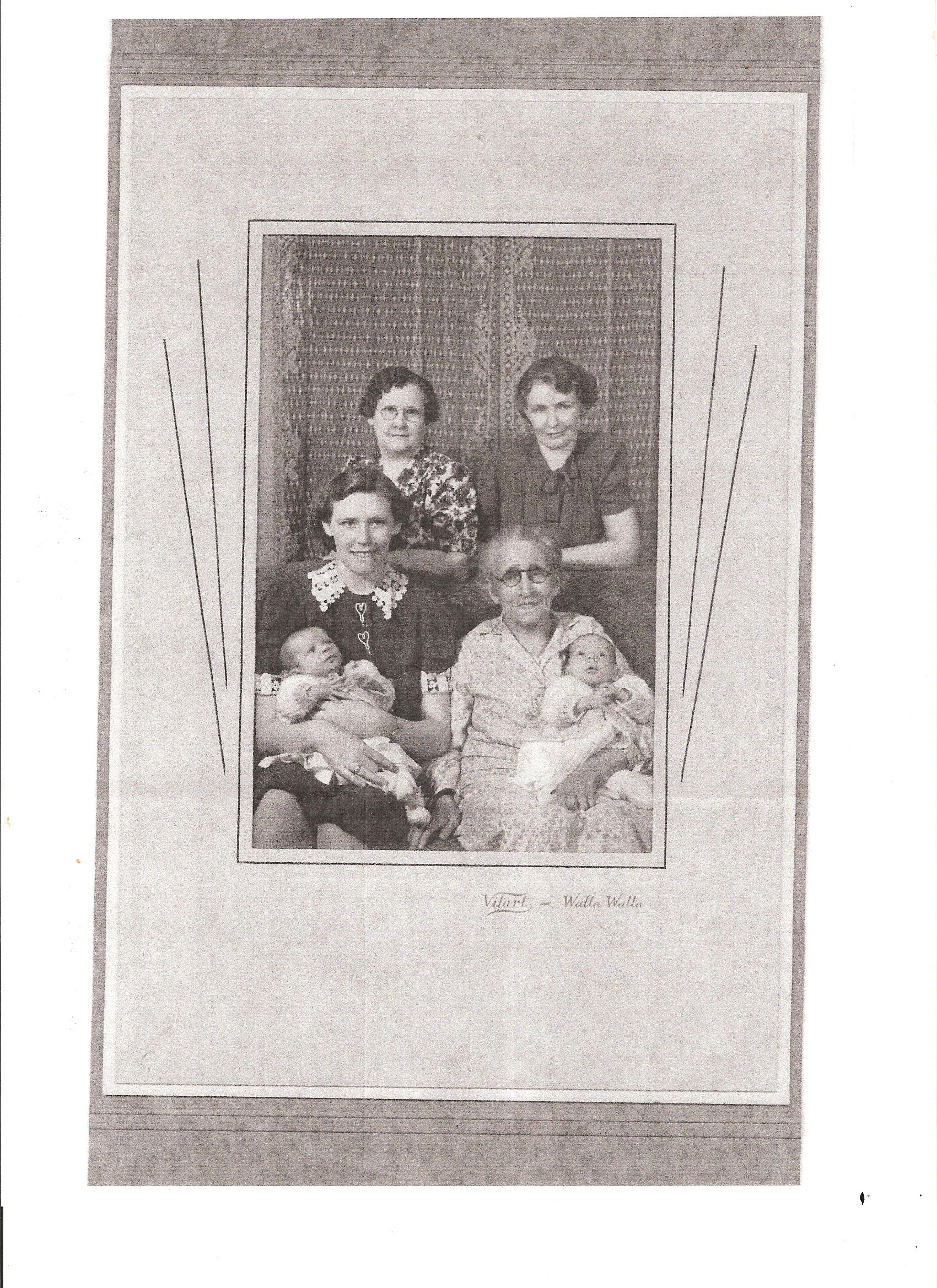Wagon trains were a planned out affair, with much preparation, farm sales, elections, etc. Every wagon train was a city on wheels, with a city government. Every wagon train also was it's own militia, with appointed officers and responsibilities.
The trains the Paul's traveled with were smaller, as was recommended due to not alarming the natives. But soon they were 100 wagons strong and trouble even among their own ranks.
The Paul's and folks ahead and behind them became part of history when a chance encounter at a river crossing altered their fate. A bragger and boaster traveling near them made the mistake of brandishing a weapon and displaying it to strangers. A few days later, that man was attacked, robbed of a great deal of money and killed. Others suffered the same or similar fates. Many thought they recognized the men as the ones from the river crossing. If this was true, they were Mormons disguising themselves as natives.
Melissa's story talks of such a fellow, but her details vary greatly from the more known story of Mr. Bullwinkle. Her story and the size of the wagon train are more in fitting with the wagon trains of 1860, making one wonder if she and some others of the children didn't come west then with another group
About 1975, her grandson, Ward Rinehart, wrote a book titled Covello, A Pioneer Remembers. In it, he wrote a couple pages about her wagon train journey west. He was not correct in saying it took only 3 months. They left in early spring and arrived in the early fall.
On arriving in the Grand Ronde valley of Oregon, near Baker City, the Paul's signed on with the Armstrong wagon train going north to Walla Walla, where their daughter in law, Harriet Ellis Paul, expected to farm near her brother, James Ellis and his wife, Margaret Winnett. They spent the first winter with the Clark Winnett family.
"My grandmother, a girl of eleven, came West with her folks the summer of 1862. She spent the next 86 years in Columbia County. She told me the trip west was the most enjoyable episode of her life. There were an even one hundred wagons in their train. They were three months on the road. There were many young people and they could hardly wait each day to reach a campsite and start the evening dancing."
"As was usually the case, until they reached the Rockies camp was made as [at] a stream crossing and the bridge planking was their dance floor. When lacking such facilities, the men picked a level spot, raked it smooth, and the fiddlers, mough [mouth] organ and jews harp players began to tune up. Square dancing with a good caller and spirited music could be done, and was, almost anywhere."
"I asked grandmother if they experienced any unusual excitement on the trip. Without hesitation she started telling about the man who announced the first night out that he was sure going to shoot himself an Indian. He proved to be quite a troublemaker, especially when drinking heavily and provided the kids in the train with the basis for all kinds of imagination. The grownups discounted his boasting and threats, but finally it happened. One morning before breaking camp, everybody was startled by the approach of a large band of mounted Indians. The chief told them a white man had shot and killed one of the tribe during the night. They had come for him and would make serious trouble for the train if he were not turned over to them. Naturally everyone knew who the culprit was and none protested when the captain of the train pointed him out and Indians hauled him away."
"Grandmother said they never saw or heard of him again. He was soon forgotten except that his wife and small youngsters were distributed among other wagons and his wagon abandoned on the spot for lack of a driver. She added that tension eased with the killer's departure and the balance of the trip was quite free of the bickering and fighting which he had continually stimulated"
"I asked her what they brought with them and gave me a list of everything she could remember-a walking plow, pitchfork, shovel, hoe and rake, small tools, a shoe repair kit and half side of leather, a big black soap kettle, wash tub and boiler, twenty gallon water keg, an old fashioned commode that her mother had packed personal things in, cooking utensils, table, dishes and implements, about two dozen fruit trees, some berry bush shoots, their bedding and clothing, a supply of garden seed and several sets of extra horse shoes. The rest of the space in the big calistoga wagon was filled with food staples. She said the kids all went barefoot and seldom ever rode in the wagons. Many of the grownups went barefooted, too."
Their wagon train arrived in the Grande Ronde Valley of Oregon in the late summer of 1862. There it divided up with some going on to Oregon and other places. Melissa's parents joined with the Armstrong family and went the northern route to the Walla Walla Valley. There they were met by the Winnett family, who they stayed until locating their own homestead just east of Waitsburg, Washington.
In the next years, other Mahaska residents came overland and settled among their old neighbors. Such was the case with the English family.
Samuel (Sam)Peoples English was captain of the 1867 train from Mahaska. 15 April 1868, he married Malisia. 12 children followed: (Dates are estimated)
Clara Jane 1869 (m. Dick Prater)
Julia Ann 1872 (m. Leonard Parsons)
Rosetta 1874 (m. Will Rice)
George Rowland 1876
Mary Lydia 1878 (m. Mike Rinehart)
Albert Willard 1880 (m. Leona Rich)
Estella Viola "Stella" 1881 (m. Howard Romaine)
Harvey Valentine 1884 (died quite young)
Mabel 1886 (m. John Harlan)
Cora Dell 1888 (m. George "Crit" Walker
Martha May 1890
Inez 1893 (m.1: Ed VanVickle m.2: Roy Warwick)
Wagon trains were a planned out affair, with much preparation, farm sales, elections, etc. Every wagon train was a city on wheels, with a city government. Every wagon train also was it's own militia, with appointed officers and responsibilities.
The trains the Paul's traveled with were smaller, as was recommended due to not alarming the natives. But soon they were 100 wagons strong and trouble even among their own ranks.
The Paul's and folks ahead and behind them became part of history when a chance encounter at a river crossing altered their fate. A bragger and boaster traveling near them made the mistake of brandishing a weapon and displaying it to strangers. A few days later, that man was attacked, robbed of a great deal of money and killed. Others suffered the same or similar fates. Many thought they recognized the men as the ones from the river crossing. If this was true, they were Mormons disguising themselves as natives.
Melissa's story talks of such a fellow, but her details vary greatly from the more known story of Mr. Bullwinkle. Her story and the size of the wagon train are more in fitting with the wagon trains of 1860, making one wonder if she and some others of the children didn't come west then with another group
About 1975, her grandson, Ward Rinehart, wrote a book titled Covello, A Pioneer Remembers. In it, he wrote a couple pages about her wagon train journey west. He was not correct in saying it took only 3 months. They left in early spring and arrived in the early fall.
On arriving in the Grand Ronde valley of Oregon, near Baker City, the Paul's signed on with the Armstrong wagon train going north to Walla Walla, where their daughter in law, Harriet Ellis Paul, expected to farm near her brother, James Ellis and his wife, Margaret Winnett. They spent the first winter with the Clark Winnett family.
"My grandmother, a girl of eleven, came West with her folks the summer of 1862. She spent the next 86 years in Columbia County. She told me the trip west was the most enjoyable episode of her life. There were an even one hundred wagons in their train. They were three months on the road. There were many young people and they could hardly wait each day to reach a campsite and start the evening dancing."
"As was usually the case, until they reached the Rockies camp was made as [at] a stream crossing and the bridge planking was their dance floor. When lacking such facilities, the men picked a level spot, raked it smooth, and the fiddlers, mough [mouth] organ and jews harp players began to tune up. Square dancing with a good caller and spirited music could be done, and was, almost anywhere."
"I asked grandmother if they experienced any unusual excitement on the trip. Without hesitation she started telling about the man who announced the first night out that he was sure going to shoot himself an Indian. He proved to be quite a troublemaker, especially when drinking heavily and provided the kids in the train with the basis for all kinds of imagination. The grownups discounted his boasting and threats, but finally it happened. One morning before breaking camp, everybody was startled by the approach of a large band of mounted Indians. The chief told them a white man had shot and killed one of the tribe during the night. They had come for him and would make serious trouble for the train if he were not turned over to them. Naturally everyone knew who the culprit was and none protested when the captain of the train pointed him out and Indians hauled him away."
"Grandmother said they never saw or heard of him again. He was soon forgotten except that his wife and small youngsters were distributed among other wagons and his wagon abandoned on the spot for lack of a driver. She added that tension eased with the killer's departure and the balance of the trip was quite free of the bickering and fighting which he had continually stimulated"
"I asked her what they brought with them and gave me a list of everything she could remember-a walking plow, pitchfork, shovel, hoe and rake, small tools, a shoe repair kit and half side of leather, a big black soap kettle, wash tub and boiler, twenty gallon water keg, an old fashioned commode that her mother had packed personal things in, cooking utensils, table, dishes and implements, about two dozen fruit trees, some berry bush shoots, their bedding and clothing, a supply of garden seed and several sets of extra horse shoes. The rest of the space in the big calistoga wagon was filled with food staples. She said the kids all went barefoot and seldom ever rode in the wagons. Many of the grownups went barefooted, too."
Their wagon train arrived in the Grande Ronde Valley of Oregon in the late summer of 1862. There it divided up with some going on to Oregon and other places. Melissa's parents joined with the Armstrong family and went the northern route to the Walla Walla Valley. There they were met by the Winnett family, who they stayed until locating their own homestead just east of Waitsburg, Washington.
In the next years, other Mahaska residents came overland and settled among their old neighbors. Such was the case with the English family.
Samuel (Sam)Peoples English was captain of the 1867 train from Mahaska. 15 April 1868, he married Malisia. 12 children followed: (Dates are estimated)
Clara Jane 1869 (m. Dick Prater)
Julia Ann 1872 (m. Leonard Parsons)
Rosetta 1874 (m. Will Rice)
George Rowland 1876
Mary Lydia 1878 (m. Mike Rinehart)
Albert Willard 1880 (m. Leona Rich)
Estella Viola "Stella" 1881 (m. Howard Romaine)
Harvey Valentine 1884 (died quite young)
Mabel 1886 (m. John Harlan)
Cora Dell 1888 (m. George "Crit" Walker
Martha May 1890
Inez 1893 (m.1: Ed VanVickle m.2: Roy Warwick)
Family Members
-
![]()
Clara Jane English Prater
1869–1953
-
Julia Ann English Parsons
1872–1892
-
![]()
Rosetta English Rice
1874–1971
-
![]()
Mary Lydia English Rinehart
1878–1970
-
![]()
Rev Albert Willard "Bert" English
1880–1938
-
![]()
Stella Viola English Romane
1881–1959
-
![]()
Harvy Valentine English
1884–1892
-
![]()
Mabel English Harlan
1886–1905
-
![]()
Cora Della English Walker
1888–1976
-
![]()
Martha M. English
1890–1890
-
![]()
Inez L English Coffelt
1895–1948
Sponsored by Ancestry
Advertisement
Explore more
Sponsored by Ancestry
Advertisement





















